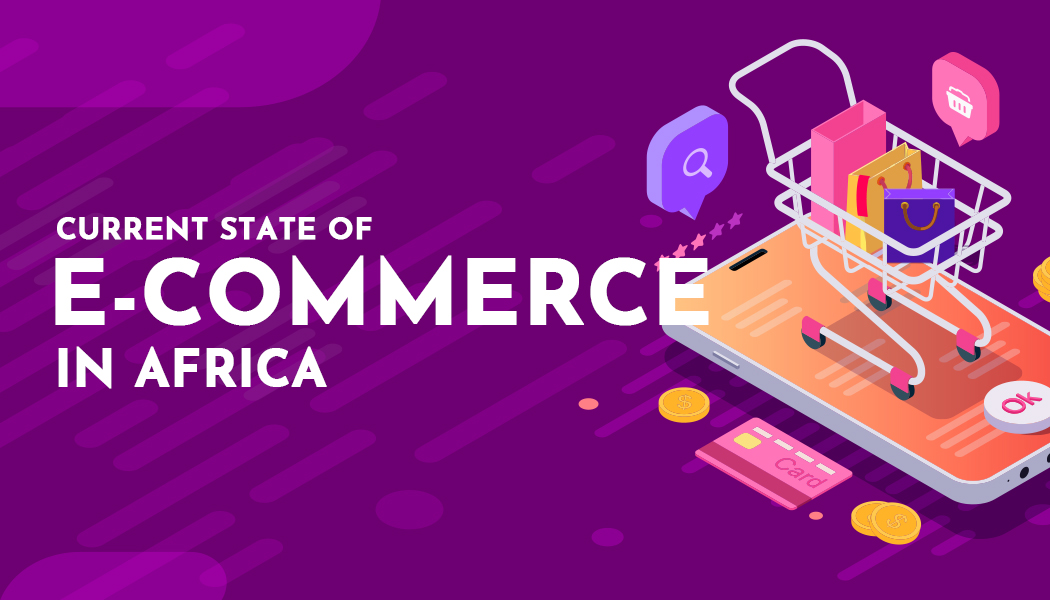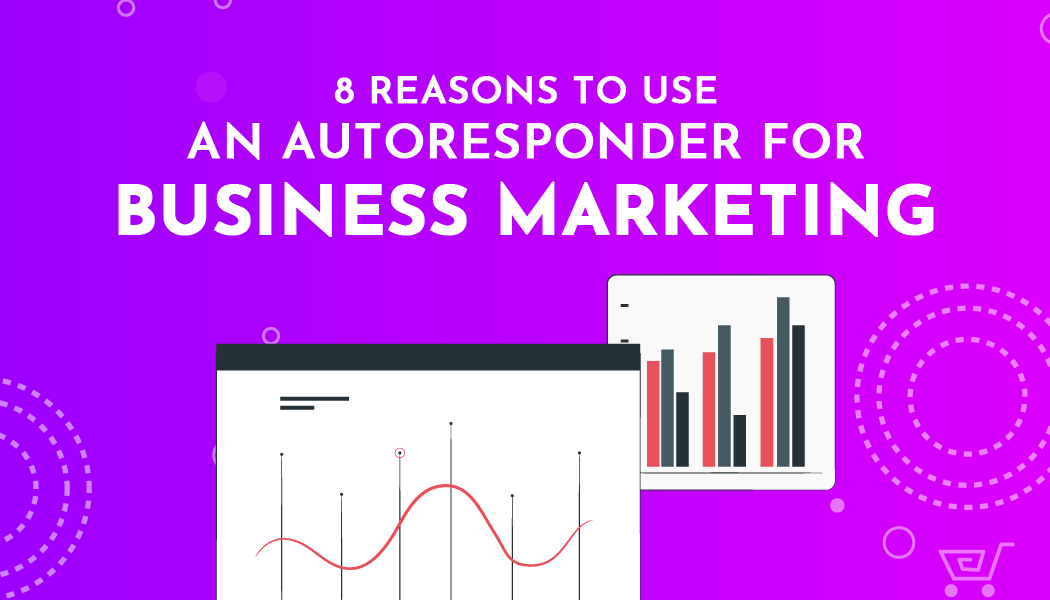Current State of E-commerce in Africa
Despite the fact that many e-commerce marketplaces in Africa is still in their infancy, statistics show that online shopping in African regions has a lot of space to grow. From showrooming to promo FOMO, these are the top e-commerce trends in Africa to watch in 2024.
What is the Current Market Size of E-commerce in Africa?
Africa's e-commerce market is currently estimated to be worth US$ 277.1 billion. According to IMARC Group's predictions, the market is expected to grow at an average per year of 14.4% between 2024 and 2032, resulting in a total value of US$ 939.8 billion.
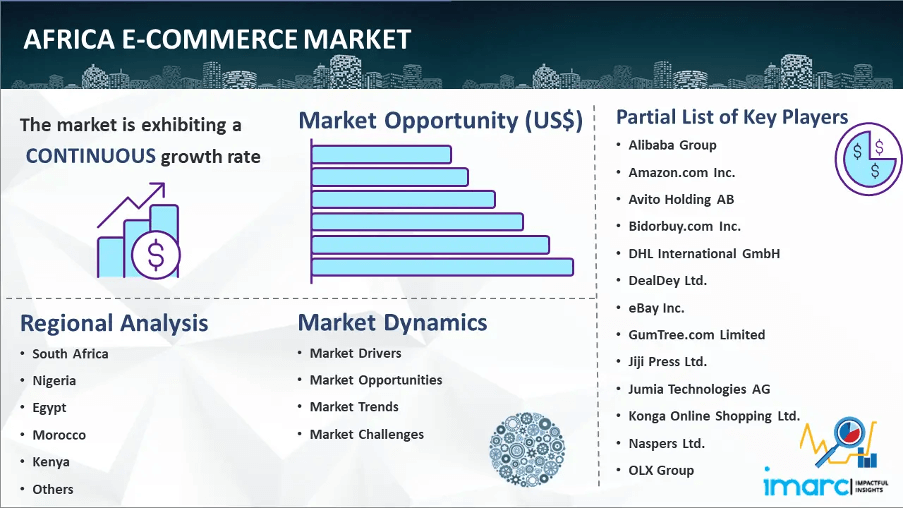
Africa is home to a sizable and quickly growing e-commerce market. With more than 264 e-commerce websites spread over 23 nations operating. Recent data Shows that Africa’s consumer base is increasingly shiffting to e-commerce(Online-Shopping), with the e-commerce penetration rate predicted to rise from 13% in 2017 to 40% by 2025. This Making more than 500 million users who shop online, indicating a notable growth trajectory.
What are the Leading E-commerce Platforms in Africa?
We have a few big companies that have developed and sustained their position of power in the African e-commerce market. These online stores provide customers with access to a wide range of goods and services, including fashion, technology, and everyday goods.
Here are some of the top platforms:
Jumia: which continues to be the most popular e-commerce site in Africa, drawing in over 32 million users each month woow. It provides a broad range of goods and services, including grocery delivery, trip booking, and retail.
Jumia operates in 14 African countries from Kenya to Egypt to Uganda. The 14 markets it serves account for 74% of African consumer spending.
Takealot: With about 10 million unique visitors each month, Takealot is another big participant. Based in South Africa, it offers a wide range of products, including home goods and technology.
Souq: With almost 10 million monthly visits, Souq is another important e-commerce portal that largely serves the Egyptian market. In North Africa and the Middle East, it is widely distributed.
Market Capacity and Growth Rates.
What Factors Are Driving E-Commerce Growth in Africa?
The E-commerce market is expanding faster than ever thanks to several important factors that are changing how consumers and companies conduct business. we will analyze these factors to provide you with a complete picture of what is happening.
Which Technology is Fueling Africa's E-Commerce Growth?
Technology has been a big driver behind the growth of e-commerce business in Africa. Leading the way are notable technologies in digital financial services, mobile technology, and internet infrastructure. Improved mobile networks from 3G, 4G, and the coming 5G—have, for example, greatly increased internet speeds and connectivity, which makes online shopping easier to access and more convenient.
What Effect Does Internet Penetration Have to Do with E-Commerce?
Internet usage in Africa has unimaginably increased, dramatically transforming the e-commerce sector. GSMA estimates that there will be 40% more internet users in Africa by 2025 than there were in 2017.
That percentage was only 13% in 2017. The main factors of this increase are the increasing number of more reasonably priced internet services and the huge number of smartphones available on the market, which enable more individuals to access and shop online.
What Role Does Mobile Phone Usage Play?
One big factor in the expansion of e-commerce in Africa is mobile phones. Mobile devices account for more than 70% of e-commerce usage in Africa, and this percentage is predicted to have increased by 2040, mobile traffic is predicted to surpass that of desktop traffic. because smartphones are widely spread and accessible almost to everyone, e-commerce is now possible for those who live in rural places with easy access to online services.
Statistics Highlighting These Trends:
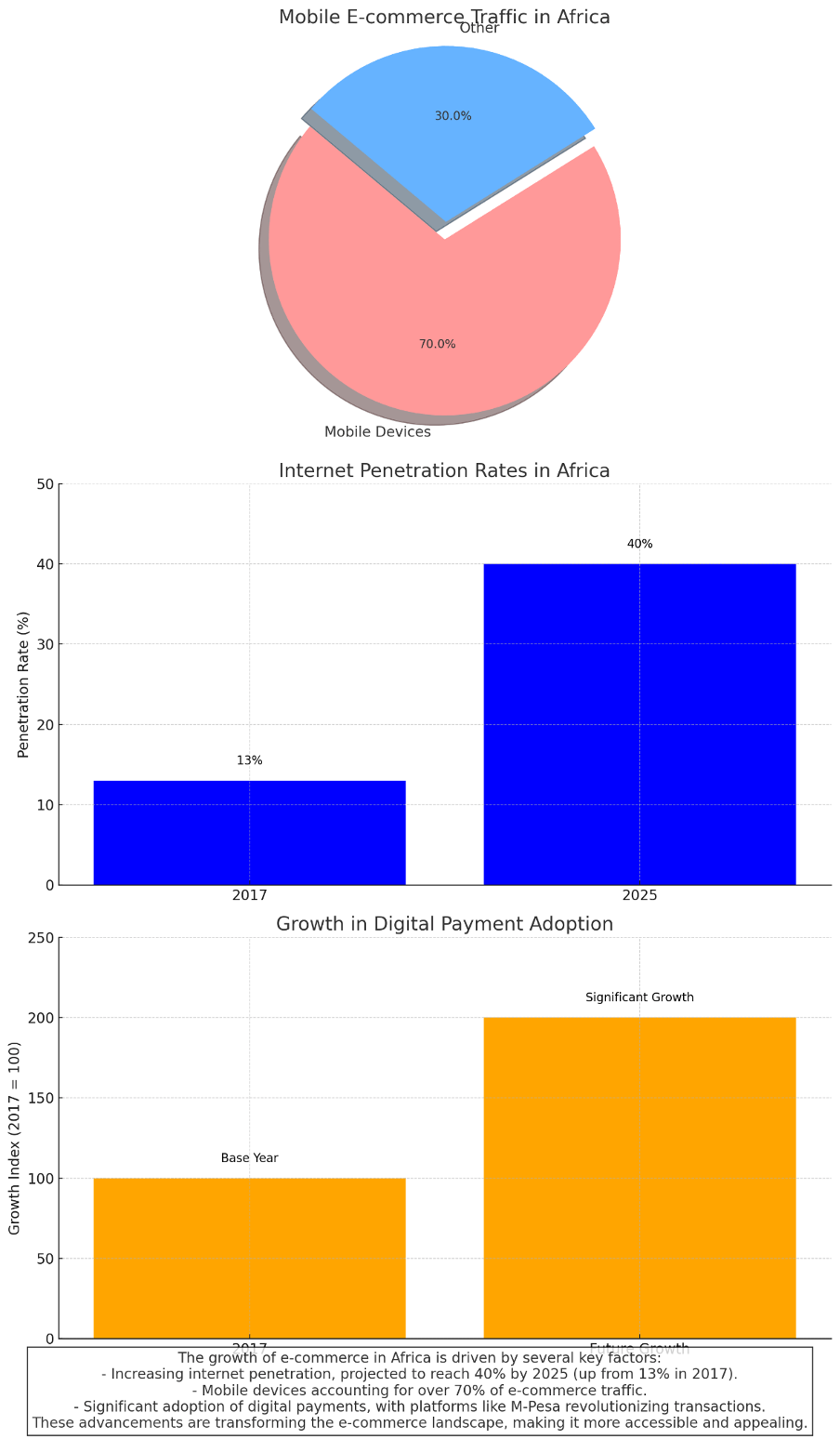
Challenges for E-commerce in Africa?
Unquestionably, e-commerce has grown greatly in Africa, but this does not mean that these companies are not encountering challenges that stop them from reaching their maximum potential.
Poor road networks and ineffective postal services make timely and reliable delivery difficult. Reduced corporate margins and increased consumer pricing which are a result of high logistical expenses. Incorrect addresses delay delivery and raise the possibility of missing or delayed orders, particularly in rural areas.
Digital commerce regulations are often underdeveloped, inconsistent, or rapidly changing, creating uncertainty. Compliance, especially for SMEs, can be expensive and time-consuming.
Import limitations and tariffs restrict market potential and make cross-border e-commerce even more difficult.
Concerns about fraud and unreliable delivery deter online transactions.
Frequent scams and phishing attacks reduce consumer confidence. These businesses continuously face cyber threats to customer data and transactions.
How Is E-Commerce Impacting Africa's Economy and Society?
E-commerce is changing the way Africans shop plus their buying decision-making and it has a big impact on the economy, society, and consumer behavior. It also creates jobs and accelerates economic progress.
How is E-commerce Affecting Job Creation in Africa?
In many different industries, e-commerce is one of the main forces behind job creation. There are now a lot of changes in IT, customer service, transportation, and warehousing thanks to the rise of online retail. E-commerce giants such as Jumia have directly generated thousands of jobs and increased employment throughout Africa.
Direct Employment:
Many people work for e-commerce enterprises themselves in positions including management, digital marketing, web development, and customer support.
I am sure if you came this far you areinterested in E-coommerce development and growth, you make a great use of the best E-commerce design and marketing strategy
Logistics and Delivery:
The rise of e-commerce has spurred the growth of logistics and delivery services, creating jobs for delivery drivers, warehouse workers, and logistics managers.
SME Empowerment: E-commerce platforms provide small and medium-sized enterprises (SMEs) with access to broader markets, enabling them to scale up operations and hire more staff.
Statistics:
Job Creation Numbers: For example, Jumia, one of the largest e-commerce platforms in Africa, employs over 5,000 people directly and supports many more indirectly through its network of sellers and delivery partners.
What Economic Benefits are Being Realized?
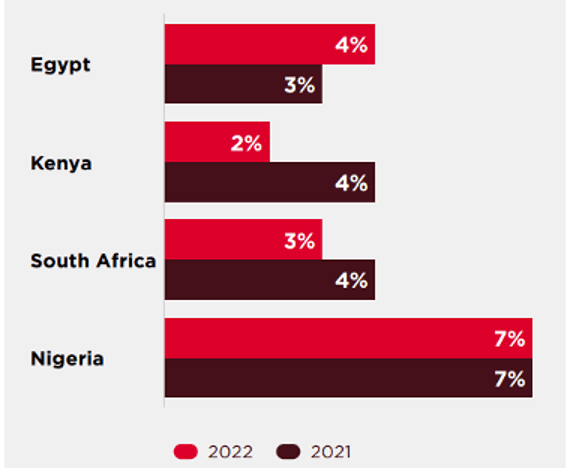
E-commerce is boosting the GDP of many African countries through increased trade and consumption. According to the United Nations Conference on Trade and Development (UNCTAD), digital commerce could contribute an additional $180 billion to Africa's GDP by 2025.
Tax Revenues: As e-commerce businesses grow, they contribute to government revenues through taxes, including VAT, import duties, and corporate taxes.
How is E-commerce Changing Consumer Behavior?
E-commerce is reshaping consumer behavior by offering convenience, variety, and competitive pricing. The ability to shop from the comfort of home, access a wider range of products, and compare prices has led to more informed and empowered consumers.
Increased Online Shopping: More consumers are turning to online shopping for its convenience, leading to a steady increase in e-commerce penetration rates. Fashion, electronics, and media are among the top categories driving online sales.
Shift to Mobile Commerce: With over 70% of e-commerce traffic coming from mobile devices, there is a significant shift towards mobile commerce. This trend is expected to continue, with mobile devices likely to become the predominant means of accessing e-commerce platforms.
Consumer Spending Patterns: Data indicates a notable increase in online spending across various categories, with fashion, electronics, and media leading the way. The convenience of online shopping has also led to a rise in impulse purchases and higher overall spending.
Mobile Commerce Dominance: Currently, more than 70% of e-commerce traffic in Africa comes from mobile devices, and this figure is expected to grow, with mobile commerce potentially becoming the exclusive mode of online shopping by 2040.
How Might Technology Further Transform E-commerce in Africa?
Artificial Intelligence and Machine Learning:
With applications like chatbots powered by AI that provide immediate assistance and machine learning algorithms that optimize pricing and marketing tactics, artificial intelligence (AI) and machine learning improve user experiences by offering tailored recommendations, making inventory management more efficient, and improving customer service.
What are the latest web design trends? While free AI logo maker sites are the hot button tools now, how can you be sure that you stay ahead of the competition and create designs that wow your audience?
Blockchain Technology:
Blockchain offers secure and transparent transaction processes, addressing issues of fraud and trust in online transactions, with implementation including smart contracts to streamline payment and delivery processes, ensuring efficiency and security, as exemplified by Amazon Managed Blockchain.
Augmented Reality (AR) and Virtual Reality (VR):
By enabling consumers to see things in a real-world setting—for example, virtual try-ons for clothing or augmented reality previews of furniture in a customer's home—AR and VR technologies improve the online shopping experience by boosting purchase confidence and lowering return rates. Innovation will be fueled by technological developments, and e-commerce will become a huge component of Africa's economic and social fabric.
What Strategies Should Businesses Adopt to Succeed E-commerce in Africa?
Suppose companies and governments want to capitalize on the growing e-commerce market in Africa. In that case, they need to take a strategic approach that solves the unique opportunities and constraints faced by the region.
Market Research:
by carrying out in-depth market research to comprehend purchasing trends, cultural peculiarities, and consumer preferences throughout Africa.
Leverage Mobile Technology:
Given the rising rate of mobile internet usage and the predicted dominance of mobile commerce, make sure e-commerce platforms are mobile device optimized. To ensure smooth transactions, incorporate well-known mobile payment options like M-Pesa, MTN Mobile Money, and other regional digital wallets.
Supply Chain Networks:
Collaborate with local logistics providers to enhance delivery efficiency and reach underserved areas, invest in robust warehousing and distribution networks to manage inventory and reduce delivery times, and employ more pickup stations and delivery systems like drones or delivery agents to improve delivery rates and reduce returns.
Focus on Trust and Security:
Use safe payment gateways such as Flutterwave, M-Pesa, and Pesapal, as they are known to safeguard client information and foster confidence in online transactions. Moreover, keep pricing, return policies, and customer support transparent to boost credibility and customer assurance.
Embrace Social Commerce:
Utilize social media platforms like TikTok, Facebook, and Instagram to engage with customers, build brand loyalty, and drive sales, while encouraging satisfied customers to share their experiences and reviews to boost brand reputation and attract new customers, and use WhatsApp for notifications, as it is more effective for communication in Africa compared to emails.
How can governments support the growth of E-commerce?
Improve digital infrastructure:
- Enhance electrical supply for digital operations
- Invest in broadband for reliable and affordable internet access
Simplify regulatory frameworks:
- Develop clear, supportive e-commerce regulations
- Provide tax incentives and subsidies
Enhance logistics and transportation:
- Improve road networks, transportation systems, and postal services
- Foster public-private partnerships for innovative logistics solutions
Promote digital literacy and skills development:
- Expand digital literacy and e-commerce training programs
- Integrate digital skills into the education system
Develop a digital policy framework:
- Promote innovation, protect consumers, and ensure fair competition
Encourage cross-border collaboration:
- Harmonize e-commerce regulations for regional trade and market expansion
Financial Inclusion:
Promote financial inclusion by supporting the development and adoption of digital payment solutions and reducing barriers to access.
Businesses and governments will fully realize the benefits of e-commerce in Africa by putting these tactics and suggestions into practice. This will raise living standards, create jobs, and stimulate economic growth for millions of people in Africa.

